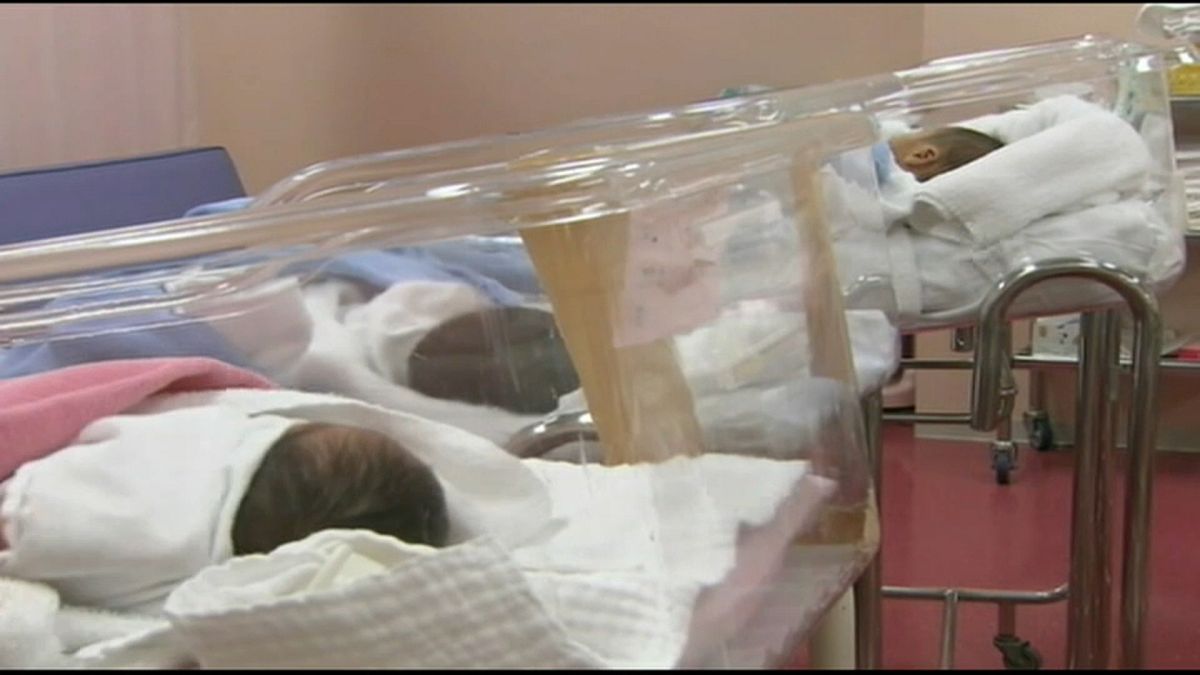Swiss drugmaker Novartis has launched an international lottery for its groundbreaking and extremely costly gene therapy Zolgensma, sparking both hope and outrage among patients’ families.
Imagine having a newborn with a debilitating genetic disease that sentences most sufferers to death before the age of two, or to lifelong paralysis.
Now you can secure treatment to save your baby – if you win a lucky draw.
Swiss drugmaker Novartis has launched an international lottery for its groundbreaking and extremely costly gene therapy Zolgensma, sparking both hope and outrage among patients’ families.
Throughout the year, the drugmaker aims to give away that treatment for free to up to 100 children under the age of two suffering from spinal muscular atrophy (or SMA) – using a random draw. Doctors can start enrolling eligible patients from today (Jan 2).
Zolgensma was approved in 2019 in the United States where it’s priced at $2.1 million, making it the world’s costliest medicine ever.
The initiative has come under fire from patient representatives for the emotional toll it will take on families desperate to save their baby. Each year, SMA affects thousands of newborns across the world, meaning there will be considerably more losers than winners in the Zolgensma lottery.
SMA Europe, which brings together patient and research groups from across the continent, has voiced concerns about the giveaway. In a statement, it said that while "every saved life is a gift", it’s "alarmed that the programme will make thousands of SMA babies compete with each other for a life-saving treatment, splitting tightly knit communities and turning this experimental drug into a coveted prize."
"We cannot have a pharma company deciding 'yes, you will get this treatment, or you will not get it'. It should be a clinician, according to clinical priorities," Kacper Rucinski, a Trustee at TreatSMA and board member of SMA Europe, told Euronews.
AveXis, which developed the drug and has since been taken over by Novartis, said it had consulted independent ethics experts to ensure the allocation of the drug is as fair as possible.
"Unfortunately there are many babies out there who deserve this medication, and we can’t produce quickly enough to treat them all," said AveXis President David Lennon, adding that the company should see production of the drug triple starting in 2021.
"This was the only way we could think about making a fair and equitable allocation of the product that is available."
Eye-watering price
Zolgensma has made headlines for its eye-watering cost in the United States. Its marketing approval in the European Union is currently under review, but some countries like France have systems that allow early access to breakthrough therapies before they’re formally approved and before a price is negotiated.
The controversy around this lottery highlights an ongoing headache for health systems around the world: how to reward pharmaceutical innovation while ensuring access to life-saving medicines.
The early development of Zolgensma was funded by a number of charities devoted to finding treatments for SMA, including France's Genethon, which holds several key patents that were licensed to AveXis. That contract includes a reasonable pricing clause for patients in France.
Lennon argued that Zolgensma is technically very challenging and very expensive to produce, and that his company had pumped several billion dollars to bring the therapy to market, a sum that “dwarfs” the early investment made by public-private partnerships.
However, he told Euronews that the clause for reasonable pricing will be reflected in France, in the reimbursement price that will be negotiated with local authorities. He added that his company is working to make sure the drug is accessible to as many patients worldwide as possible.
Hope and heartbreak
Zolgensma is given to babies in a single intravenous infusion and it corrects the basic genetic defect that causes SMA. While it cannot reverse the damage already done by the disease, data show it halts deterioration of the nerve cells and allows children to develop more normally.
The drug has generated huge hopes among parents, with several of them launching crowdfunding operations to pay for the life-saving treatment.
Belgian mother Ellen de Meyer raised 1.9 million euros in a matter of days last September to buy Zolgensma for Pia, her now 13-month-old daughter. In October, Pia got the treatment in a hospital in Antwerp. De Meyer said the family initially thought it would have to travel to the US to get it, but Pia’s doctor arranged for everything to be done in Belgium.
Since then, she says, the progress has been "amazing".
“She has improved so much. She has started to roll over, she has much more coordination in her hand, no respiratory problems anymore, so we can safely say the drug has had its effect,” de Meyer said in an interview on Euronews Now.
But she too had mixed feelings about the Novartis drug giveaway.
“I cannot imagine to get your hopes up every two weeks, hoping your child’s name will be drawn from the lottery, only to be disappointed again,” she said.
“I think it will be very, very difficult for those parents.”
You can watch highlights from the interviews in the player above.
